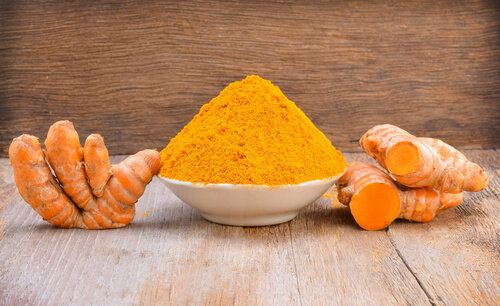 Turmeric tea is a tea made from the spice turmeric, which contains the active ingredient ‘curcumin’. Turmeric is found in a lot of food and especially curry, where it replaces saffron thanks to its similar taste and cheaper price. Moreover, however, turmeric is also enjoyed for its great many different health benefits. It has long been used traditionally for a number of purported remedies, but today science is demonstrating that many of these benefits stand up to testing. In fact, turmeric may be even more beneficial than we at first realized!
Turmeric tea is a tea made from the spice turmeric, which contains the active ingredient ‘curcumin’. Turmeric is found in a lot of food and especially curry, where it replaces saffron thanks to its similar taste and cheaper price. Moreover, however, turmeric is also enjoyed for its great many different health benefits. It has long been used traditionally for a number of purported remedies, but today science is demonstrating that many of these benefits stand up to testing. In fact, turmeric may be even more beneficial than we at first realized!
Turmeric is available in a range of forms, but one of the best ways to enjoy it is as a warming tea. Turmeric tea is brewed using pure root or powder and is thought to be one of the best ways to get the full benefits.
In this post, we’ll look at
1. It’s More Bioavailable
Studies demonstrate that adults can safely consume 400-600mg of turmeric a day at least – and in all likelihood that number should be higher. For specific conditions, taking more may well be advisable.
The problem is that turmeric is not highly bioavailable.
That means that when you consume it, there’s no guarantee that the body will utilize enough of it in order to get the full benefits. This is part of the challenge when using turmeric supplements – ensuring that enough of the active ingredient is made useable by the body.
Drinking the tea is thought to be one of the best ways to ensure that your body can actually make use of the substance. Consuming pipperin supplements along with curcumin may be one other method, but of the two, the tea is certainly the more readily available to most of us, and the more delicious!
Either use the turmeric root or file it off and steep.


